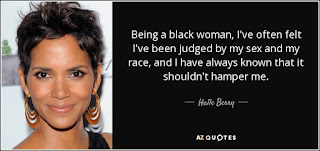The other day, one of my guy friends came to my room saying “Wassup’ nigga?” Now this is not the first time that this happened. That is his normal way of greeting me and my roommates. I personally do not appreciate being called a “nigga” but I never said anything to him about it. But this particular day I got extremely irritated because he said it several times while he was in the room. My friends noticed my frustration, so after he left we had a long discussion about the word. One of them asked me why did it bother me so much and I was puzzled as to why she asked me that then she went on to say “It’s not like he’s a white person and he called you a nigger.” This incident sparked this post because I realized that different people look at this word differently and I wanted to share my perspective.
A little disclaimer: I do not speak for all black people. This is just based on my personal opinion and my life experience.
If you are not a black person and use the n-word, regardless of the ending, whether it is “er” “a”, chances are you are going to face some sort of backlash. Usually, the excuses I’ve encountered on social media or real life starts with “the n-word is not really a racial slur, it doesn’t mean black people, it means stupid.” That is absolutely incorrect.
The n-word comes from the Spanish and Portuguese word for black –“Negro”. So how do you take a completely benign word, the word for black and make it into a slur?
You have to look at the word’s historical context. The n-word was used to describe black people as they were being stolen from Africa put into slavery, chained, lynched, raped, beaten, spit upon. The word was created as a tool of oppression. Its historical context cannot be erased.
Who is allowed to say it?
In reality, everyone is allowed to say whatever it is the want to say but there are always consequences for your words and your action. Depending on who you are, and where you are, there will be different consequences for what you say and do. This is not only related to the n-word; this is a regular occurrence. It is a matter of in groups and out groups’ dynamics.
 When you are a member of certain groups, there are things that are totally okay and socially acceptable when you are in that group and for people outside the group, you give them the side eye and it’s just not okay.
When you are a member of certain groups, there are things that are totally okay and socially acceptable when you are in that group and for people outside the group, you give them the side eye and it’s just not okay. I’ve also encountered this common idea “If you guys don’t want people to say it, then you should stop saying it.”
Personally, I do not use the n-word. I’m also not going to begrudge anyone that use it because you can talk about yourself however you want to. There are some people that use the n-word as a way to reclaim it, almost like an act of defiance.
The n-word is not cool and we should never refer to one another using it. It does not matter whether it ends in an –a or an –er. If I could stop black people from using that word, I would but it’s not like we’re all tap into some hotline where I can call and make decisions about what we should all do. What I can do though is not use the word myself with the hope that my surroundings pick up on it and not use it themselves.

























